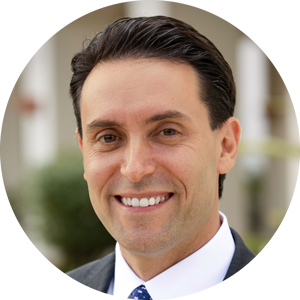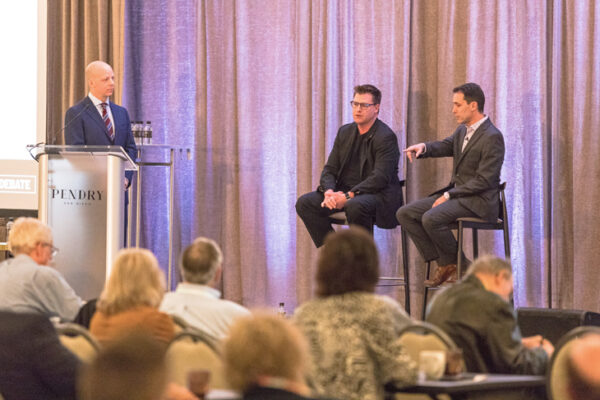Don’t Buy the House You Can Afford
“Why didn’t you buy one of these houses?” my father-in-law asked. “You can afford it.”
We were driving through the “expensive” section of my neighborhood where the houses are 4,000 square feet and above and cost at least $150,000 more than the one I had just purchased.
“I don’t need a house that big,” I replied. “And I don’t want to air-condition and furnish something that large,” I added for emphasis.
This was right after my wife and I bought our first house – the home we still live in – in the “not so expensive” section of my neighborhood. But it was a brand-new home, more than three times the size of the apartment we moved from – and 40% bigger than the house I grew up in.
It has an incredible view of a nature preserve, including wetlands. In our opinion, it is the best lot in the neighborhood. We have amazing birds in our backyard every day, my kids can take 10 steps out of the house and go fishing anytime they want and, maybe best of all, no one can build behind us.
We actually had looked at the “expensive” section of the neighborhood. And the houses were very nice. But it would have cost around $750 more per month. While we could have afforded it, that didn’t mean we had to.
The house we chose has been wonderful to my family. It’s the home my kids have grown up in and we have had lots of happy memories there.
But importantly, because we didn’t “max out” our budget and buy the most house we possibly could, it allowed us to do other things that have changed our financial picture. For example, by not spending the extra $750 per month (plus who knows how much more to run and maintain it), we were able to put down payments on investment properties. These properties are cash flow positive, adding to our income every month.
Think about that for a second. Instead of having a larger monthly nut to cover for my house, the money instead was put to work and adds to my income every month. That is a big swing.
One of the properties has soared in price and, should we sell it, the profits would pay for a few years of college. If we had bought the more expensive house, we would have had to come up with the money for school somewhere else.
There have been some sacrifices for sure. A few of our friends have magnificent homes that are worthy of being in a magazine. When they entertain, it’s always an incredible party. (Though one of those friends doesn’t have a dime saved for their kids’ college educations.)
My son asked me recently, “Dad, why do many of our friends have more money than us?”
I asked him why he thought they had more money. He responded, “Well, they have nicer houses than we do.”
I reminded him about the great vacations we take every year (Italy, California, the Oregon coast), the summer camp he goes to and many of the other nice things we enjoy.
“Just because someone has a big house doesn’t mean they’re rich,” I explained.
I told him the story of someone I met when we first moved to the neighborhood. Within five minutes of starting the conversation – and without asking – this blowhard told me how much money he made (he claimed $400,000 per year), what he drove (a high-end Mercedes) and all the upgrades he was putting into his house (in the “expensive” section).
Four years later, his house was foreclosed and he literally was pulling trees and plants out of his yard to sell before the sheriff got there to throw him and his family out.
There’s absolutely nothing wrong with having a beautiful house that you can be proud of and enjoy showing people when you entertain. But if you can be happy in a less expensive house, it can free you up to do other things – including investing for the future.
Besides, to me, a home isn’t defined by crown molding, expensive floor tiles and an extra half bathroom that no one uses. It’s the living room where the family snuggles on the couch to watch movies and the great smell from the kitchen when I walk in the door after work.
In fact, in my house, despite having enough square footage for the four of us to spread out, we all spend most of our time in the kitchen and living room. The four of us together. It doesn’t get homier than that.
[adzerk-get-ad zone="245143" size="4"]About Marc Lichtenfeld
Marc Lichtenfeld is the Chief Income Strategist of Investment U’s publisher, The Oxford Club. He has more than three decades of experience in the market and a dedicated following of more than 500,000 investors.
After getting his start on the trading desk at Carlin Equities, he moved over to Avalon Research Group as a senior analyst. Over the years, Marc’s commentary has appeared in The Wall Street Journal, Barron’s and U.S. News & World Report, among other outlets. Prior to joining The Oxford Club, he was a senior columnist at Jim Cramer’s TheStreet. Today, he is a sought-after media guest who has appeared on CNBC, Fox Business and Yahoo Finance.
Marc shares his financial advice via The Oxford Club’s free daily e-letter called Wealthy Retirement and a monthly, income-focused newsletter called The Oxford Income Letter. He also runs four subscription-based trading services: Technical Pattern Profits, Lightning Trend Trader, Oxford Bond Advantage and Predictive Profits.
His first book, Get Rich with Dividends: A Proven System for Earning Double-Digit Returns, achieved bestseller status shortly after its release in 2012, and the second edition was named the 2018 Book of the Year by the Institute for Financial Literacy. It has been published in four languages. In early 2018, Marc released his second book, You Don’t Have to Drive an Uber in Retirement: How to Maintain Your Lifestyle without Getting a Job or Cutting Corners, which hit No. 1 on Amazon’s bestseller list. It was named the 2019 Book of the Year by the Institute for Financial Literacy.






